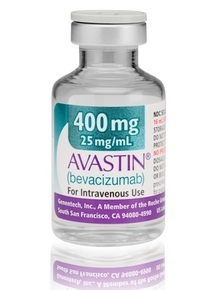FDA Commissioner Dr. Margaret Hamburg announced this morning that the agency is revoking approval of Avastin as a treatment for metastatic breast cancer. The Agency had "fast tracked" the approval of the drug in 2008, based on results of one study, but had requested additional research. Those follow up studies did not support the initial findings, the FDA has decided.
NPR's Shots blog reports on today's events as well as the history behind the decision.
Hamburg lays out the reasoning for the rare move in a 69-page decision. In a news briefing Friday morning, she said of the drug: "It's clear there is no benefit to breast cancer patients that would justify its risks." She said she didn't "come to this decision lightly but as a result of a rigorous process."
Roche's Genentech unit, maker of Avastin said in a statement, "We are disappointed with this outcome." The company said it will help women "who may be facing obstacles to receiving their treatment" with the drug through a patient-support program. It's also continuing research on the use of the drug for breast cancer.
Avastin's side effects are serious, including heart attack or heart failure, severe high blood pressure, and perforations in different parts of the body such as the stomach and intestines.
In a letter to the New England Journal of Medicine, Dr. Mikkael A. Sekeres, an oncologist with the FDA's Advisory Committee on this issue, summed up the limitations of Avastin in a question he would pose to a patient:
“Well, I can offer you a drug that will not make you live longer, won't make you feel better, and may have life-threatening side effects, but it will keep your cancer from worsening by an average of 1 to 2 months.”
Hope? Or false hope?
The San Francisco-based advocacy group Breast Cancer Action had opposed the use of Avastin to treat metastatic breast cancer since 2007, before the FDA's initial approval, over concerns about efficacy and side effects. Today, Karuna Jaggar, Breast Cancer Action's Executive Director, applauded the FDA's decision.
